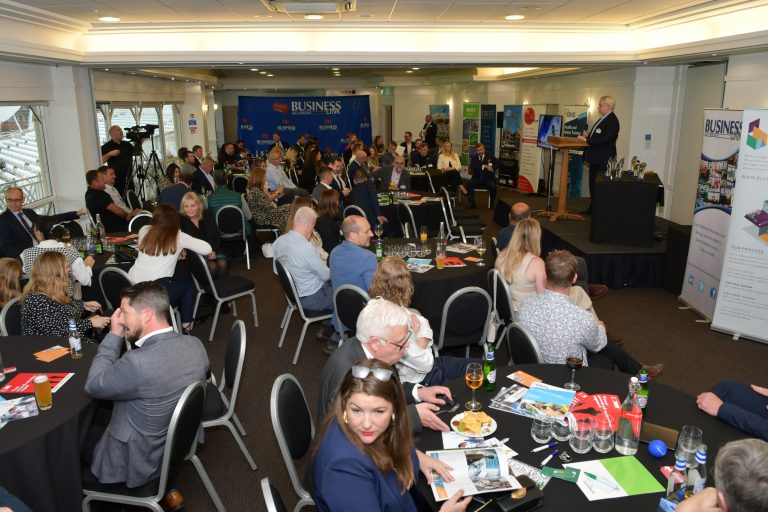Profit warnings issued by listed Midlands companies almost half in Q1 2025
The subtle changes making a big difference to workplace culture
Employee engagement rises but inequalities divide the workforce, warns survey
Agri-tech firms appoint new chief to drive commercial growth
Three UK-based agri-tech companies, B-Hive Innovations, HarvestEye, and RootExtracts, have appointed Doreen Spikings as their new Chief Operating and Commercial Officer, signalling a strategic push for commercial scaling and product development.
Spikings brings over two decades of experience across the fresh produce sector, covering supply chain operations, technical strategy, and commercial leadership. Her prior roles include senior positions at Keelings, Greenvale, and Greenyard, where she led commercial teams focused on fresh and prepared produce across global markets.
The appointment comes as the three East Midlands firms accelerate their efforts in research-based agri-tech solutions. Initially centred on potato innovations, B-Hive has expanded its offerings to other crops, including strawberries, apples, and onions, with further growth planned in sectors such as aquaculture. HarvestEye, a crop insights platform, is scaling internationally, while RootExtracts is entering commercialisation with a focus on upcycling potatoes into plant-based ingredients.
The addition of leadership is expected to support commercialisation efforts, IP development, and global client acquisition, aligning with the group’s broader ambitions for financial and environmental sustainability in food production.
Northern and Midlands exporters trail London in overseas trade
A nationwide survey has revealed a significant disparity in export confidence and activity between firms based in London and those in the North and Midlands. While export performance improved overall in Q1 2025, regional businesses outside the capital remain less optimistic about growth, prompting renewed calls for targeted government support.
The UK Trade Barometer, launched by Manchester Airports Group (MAG) and the Growing Together Alliance, surveyed more than 1,500 businesses nationwide. The findings show that while 68% of London firms already trade internationally, only 39% of companies in the North and 43% in the Midlands and East of England do the same.
In Q1, 63% of exporters increased sales to existing markets and 47% entered new ones. However, expectations for further growth were uneven: 41% of London-based firms plan to expand into new markets in Q2, compared to 19% in the North and 21% in the Midlands. Similarly, only 24–27% of firms outside the capital expect increased sales in current export markets, compared to around 50% in London.
Despite geopolitical uncertainty, notably around potential US tariffs, 41% of firms already exporting to the US anticipate further growth there in Q2. However, future diversification appears to be a priority, with EU markets, especially France, Germany, Italy, Belgium, and Spain, ranking alongside Canada, Australia, Brazil, and Japan as top targets for market entry.
MAG and the Growing Together Alliance, which includes six major regional business groups, argue that a national strategy is needed to equip firms outside London with better trade infrastructure and support. The data suggests that boosting regional exports could improve productivity and narrow the economic gap with the capital.
The barometer will be updated quarterly to monitor exporter sentiment and identify trends in global trade activity from different parts of the UK.
Former Derby department store snapped up
Leicestershire technology group acquires Spanish software developer
CEO shares personal journey to highlight importance of mental health during Mental Health Awareness Week
East Midlands civil and structural engineer celebrates framework successes
“I’d encourage everyone to get involved to show how your business is making a difference in the sector” – East Midlands Bricks Awards 2025
- Contractor of the Year
- Developer of the Year
- Architects of the Year
- Most Active Agent
- Deal of the Year
- Residential Development of the Year
- Sustainable Development of the Year
- Commercial Development of the Year
- Excellence in Design
- Responsible Business of the Year
- Overall Winner
Nominations will close on Friday 15th August.






To be held at:
 With a limited number of sponsorship opportunities remaining, please contact Angie Cooper at a.cooper@blmgroup.co.uk to learn more if you are interested in becoming an East Midlands Bricks Awards 2025 sponsor.
With a limited number of sponsorship opportunities remaining, please contact Angie Cooper at a.cooper@blmgroup.co.uk to learn more if you are interested in becoming an East Midlands Bricks Awards 2025 sponsor. 











